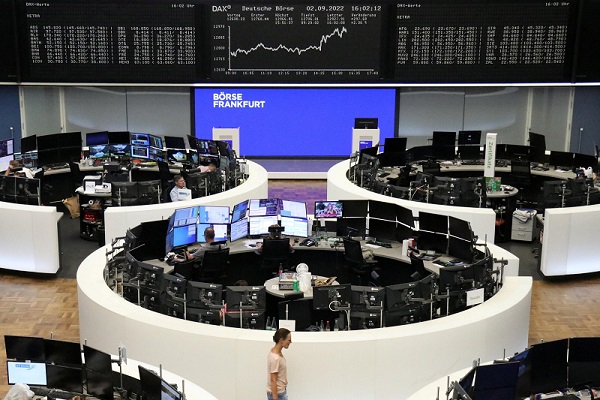Investing.com -- As of August 2024, BofA Securities continues to maintain a negative outlook on European equities.
The brokerage's cautious stance is primarily driven by a complex macroeconomic environment, where conflicting data signals, particularly from the U.S. labor market, have heightened uncertainty and volatility in global markets.
BofA analysts flag the significant shift in market focus from inflation concerns to growth risks. In the earlier part of 2024, weaker macroeconomic data was often interpreted as a sign that inflation was under control, potentially leading to more dovish central bank policies.
However, as inflationary pressures eased, particularly in the U.S., attention has turned towards the health of the labor market and broader economic growth prospects.
The U.S. labor market, a key indicator for global economic trends, has shown signs of weakening.
“The US unemployment rate is up 90bps from the cycle low and up by 80bps year-on-year, a move that, over the past 75 years, has only been seen during recessions,” the analysts said.
Despite some arguments that this increase may be less alarming due to factors like higher immigration and weather-related disruptions, BofA's analysis suggests that the balance of risks is skewed towards further labor market softness.
This expected weakness is seen as a precursor to broader economic slowdown, which is bad news for equities, including those in Europe.
The uncertainty surrounding the U.S. labor market directly impacts European equities. BofA projects around 15% downside for European equities by Q2 2025, driven by a combination of rising risk premia and weakening earnings per share (EPS) expectations.
The brokerage is particularly negative on cyclical sectors—industries that are sensitive to economic cycles—such as capital goods, construction materials, and banks.
These sectors, which have not yet fully participated in the global market drawdown, are expected to underperform as economic conditions deteriorate.
On the other hand, defensive sectors like food & beverages are seen as more resilient. BofA favors these sectors due to their historical outperformance during periods of rising risk premia and economic downturns. The firm highlights the food & beverage sector as a strong defensive play, noting that it remains near decade-lows relative to the broader market, suggesting significant upside potential if the economic environment continues to worsen.
BofA's sectoral outlook is marked by a clear preference for defensive over cyclical stocks. Among cyclicals, sectors like luxury goods and semiconductors, which have already corrected sharply, are considered less risky due to their potential to benefit from declining interest rates. However, the broader cyclical sectors are expected to see further downside as the anticipated economic slowdown materializes.
In contrast, defensive sectors, especially food & beverages and pharmaceuticals, are overweighted in BofA's strategy. These sectors are not only seen as undervalued but also as having a reliable track record of outperformance during downturns.
The analysts underscores the importance of sector rotation in the current environment, where investors are advised to reduce exposure to high-risk cyclicals and increase allocation to defensives.
The broader market dynamics also play a crucial role in BofA's negative outlook on European equities. The firm notes that the market's recent resilience may be misleading, as investors continue to "keep dancing until the music stops," driven by performance pressures and a lack of clear macroeconomic direction.
However, BofA cautions that if the U.S. labor market weakens further, it could trigger a sharp increase in risk premia and a corresponding decline in market valuations.
Moreover, the potential for a classical economic downturn, characterized by declining growth momentum and rising risk aversion, is seen as a significant threat to European equities.
Despite the possibility of the Federal Reserve adopting a more accommodative stance, BofA warns that such measures are unlikely to prevent a market correction if the labor market continues to deteriorate.
